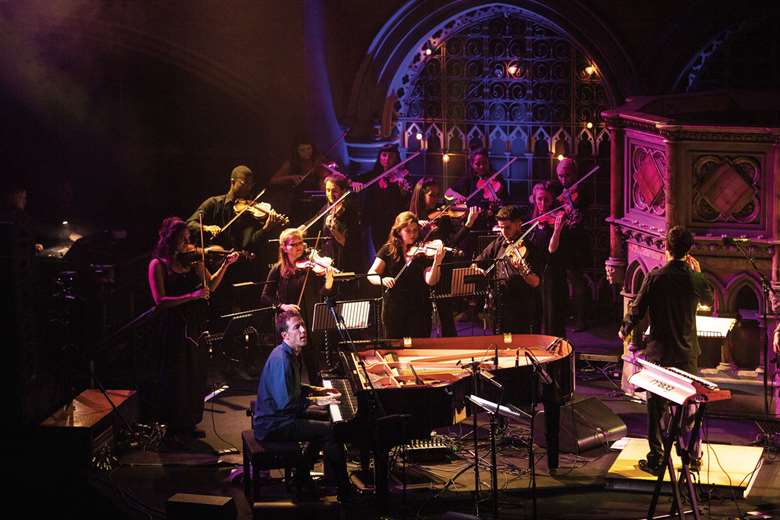Is it time for UK jazz venues to take a different approach to their audiences?
Roseanne Hanley
Thursday, September 12, 2024
Roseanne Hanley assesses the viability of the live jazz scene in the wider UK cultural context that’s tougher than ever but not without hope

The arts, particularly live performances, are at a critical intersection. Following the extreme impacts of the pandemic, then any recovery hampered by the cost-of-living crisis, the health of the live music sector has faced significant risk. Now, with a welcome change of government, there is at least some hope of improvement on the horizon - but there’s a lot to sort out in the meantime.
Music Venue Trust hold their 10th edition of ‘Venues Day’ this month (8 October). They stated that "in 2023, more than one venue closed every week. Another 72 Grassroots Music Venues significantly reduced or ended their live music offer in 2023, and 38% of GMVs in the UK made a loss in the last 12 months".
Furthermore, Pirate.com reported that: “only 26% of artists usually turn a profit from gigs, slightly less than the 29% who profit from touring” and Resident Advisor found that: “2024 is only halfway through, but last year's figure for cancelled or postponed festivals (36) in the UK has already long been surpassed. The total number is now up to 50.”
It doesn't work if everyone isn't listening
Sam DaviesThis corroborates recent findings released by The Audience Agency, stating “overall sales in 2023/24 were down 10% on 2018/19 and that there was considerable difference between the changes for different audience types.” These are worrying insights that paint a dark picture for the live performance economy.
Sam Davies, Artistic Director and Founder of the Manchester based Untold Orchestra, says: “I think the last few years have undoubtedly been incredibly hard for venues and promoters to try and understand what a post-COVID-19 live music scene looks like.”
He continues, “the huge demand for live music that came after lockdown created an optimistic hope that gigging every night to massive crowds was the new normal. As more time has passed, and cultural recovery funding has been spent, we've seen this shift closer to what things looked like before.”
Steve Crocker, Promoter and Trustee at JazzLeeds says, “our experience is that the overall audience for jazz has increased. We topped 8,000 ticket sales for the first time last year”, offering a glimmer of hope for numbers. He has however noticed changes in who’s attending: “our audience is more diverse than it was and is more open to try different music. We find jazz audiences in Leeds tend to be loyal to one venue rather than to a band or type of music – people enjoy experiencing music with friends in a familiar setting. This social element is vital.”
Davies says, “People are skint. Tickets are being bought later than before, often on the day, as people wait to see if they can afford the luxury of live music.” Understanding the profile of audiences, people’s behaviours as well as their motivations (and barriers) to attendance can be key insights to unlocking meaningful and longer lasting participation.
“Live music requires listening,” continues Davies, “whether it's musicians listening to each other, the audience listening to every note of a guitar solo, or the artists listening to the audience's enthusiastic demands for one more song - it doesn't work if everyone isn't listening.”
“In Untold Orchestra we have a deep conviction in the power of music to build supportive communities and create positive social change. An ability to listen to what our communities want to see, not just on stage but off too is incredibly important. Whether it's how you operate as an organisation, support the next generation, make space for people to develop their creative skills, or ensure representation across programming, there's a lot of responsibility and expectation placed on creative businesses. This can lead to an anxiety to get everything perfect, which then leads to inaction out of fear of 'getting it wrong'. From my own experience, people focus on intent. If they can tell you're genuine in your efforts to bring some positivity through music, then they will support you.”
Crocker considers, “the challenge for us is to work out how to survive and thrive in this very different landscape. We have had to adapt, to develop newer approaches. We now put on jazz at a variety of times in the day, with all sorts of types of music and pricing levels. We offer education events, community events and chances for people to join in.”
It's not all about money – resources, volunteer time, education are all challenges: “the overall problem for independent volunteer run organisations is finding people who are prepared to put the time into running and supporting our activities,” says Crocker. “Money isn’t the main problem. What we need are successors to the current generation of volunteer promoters.”
“My advice for venues and promoters,” Davies offers, “is to resist the temptation to rush the planning process and 'just get the tickets on sale'. Take time engaging genuinely with your audiences, ask what they want to see, what they can afford, plan with them and build communities around your venues and festivals - see the audience as people not ticket-sales!”
The sector continues to face additional challenges, but appetite for live music and jazz remains strong. In this ever-changing environment however, one thing we can all do is open our ears and listen.
This article originally appeared in the October 2024 issue of Jazzwise. Never miss an issue – subscribe to Jazzwise today